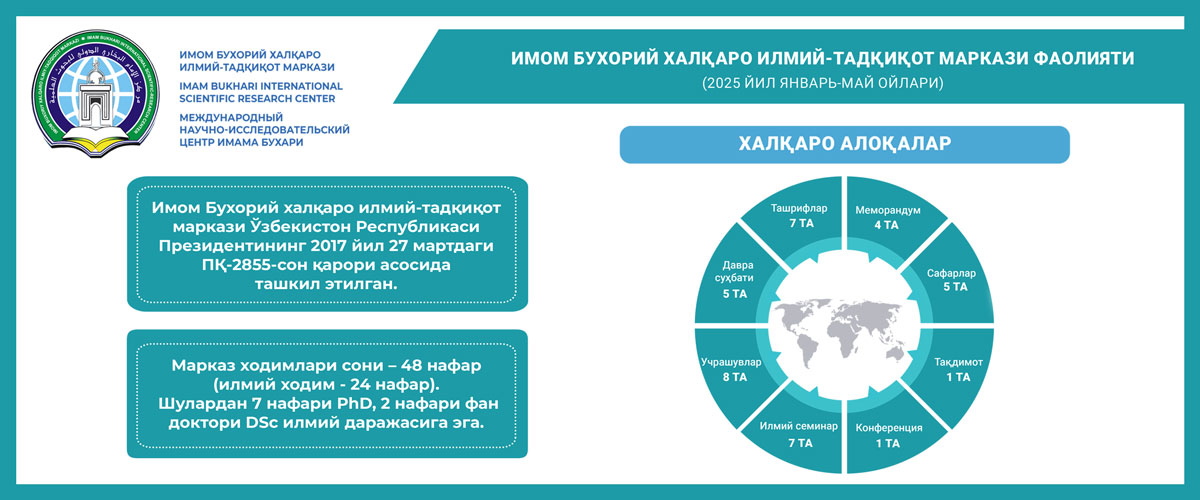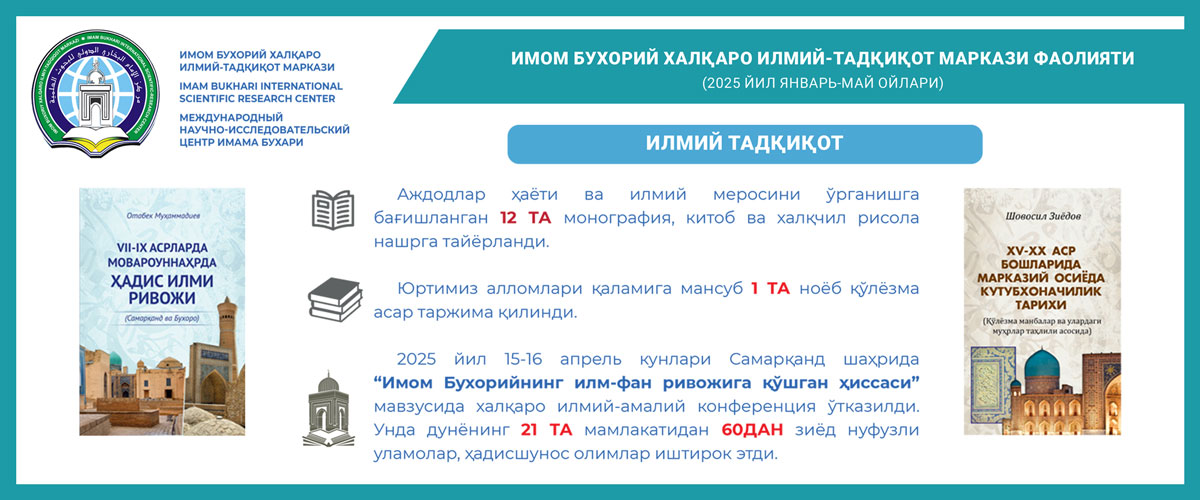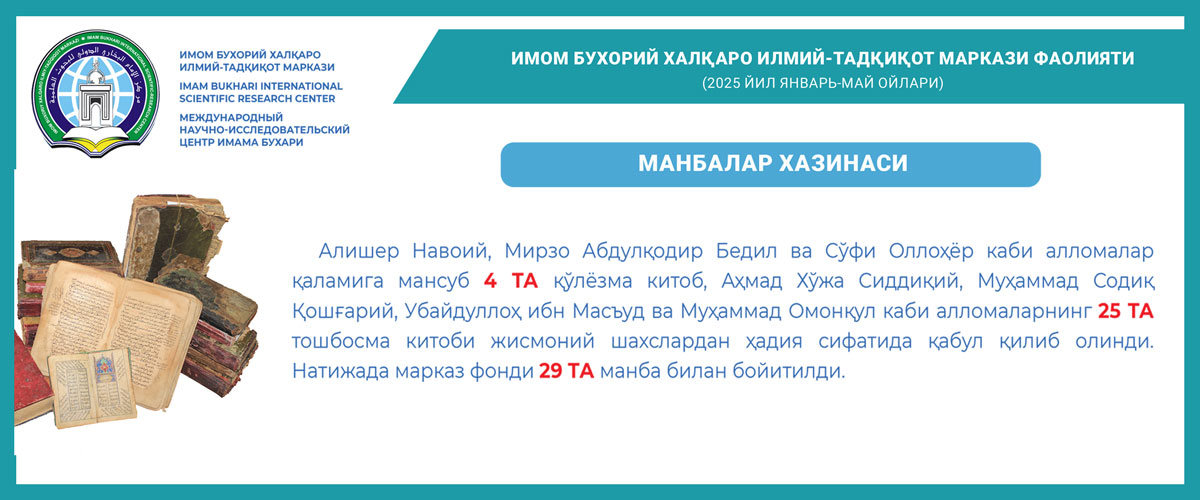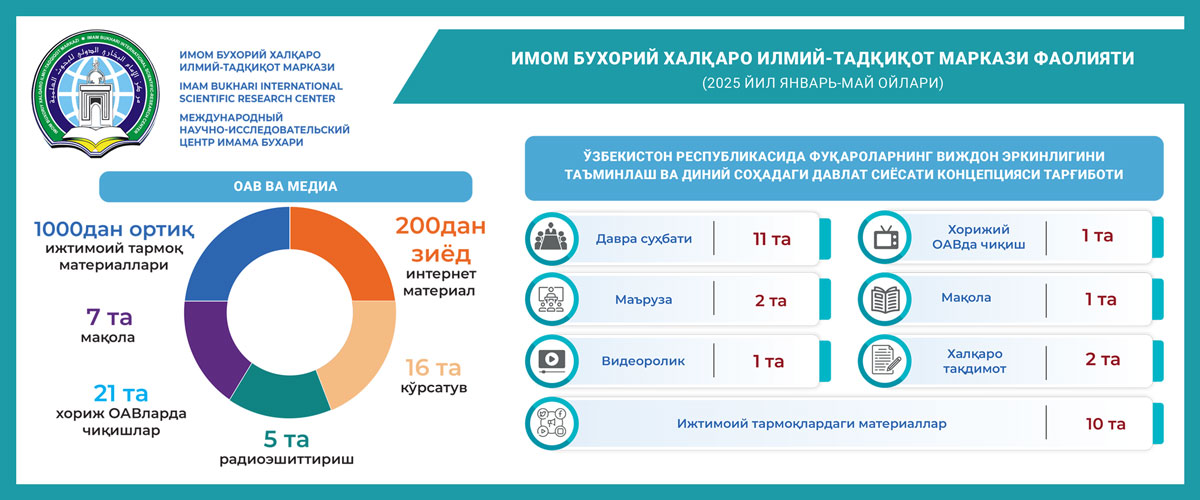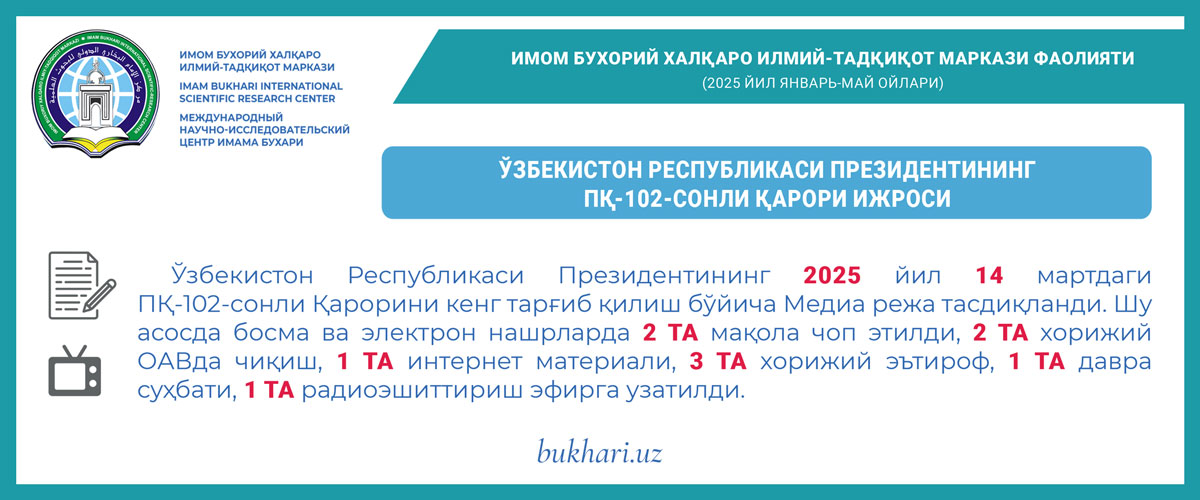In most parts of his explanations of tafsirs Abu-l-Barakat an-Nasafi relies on the legends and ideas expressed by ibn Abbas, an rxperienced expert in tafsirs, the supporter and follower of the teachings of Prophet Muhammad (saas). Further, he uses the legends mentioned by Sahabas and Tabi’iys as Ibn Mas’ud, Anas ibn Malik, Hasan, Ubay ibn Ka’b Mujahid, etc. For instance, the word “pray” in the ayah of the Qur’an “Pray to your Creator” (Baqara, 21) is commented by Ibn Abbas in the following phrases: “Each prayer in the Qur’an means the uniqueness of Allah”.
Anas ibn Malik says: “Anyone who read the “Baqara” and “Ali Imran” Surahs would be the greatest of us”.
One who reads “Tafsir an-Nasafi” can see that the ideas of the book are based logically and scientifically, good will and knowledge is appreciated but evil and wrongdoings are criticized mercilessly.
The ayahs of the Qur’an saying, “Oh, my God make my knowledge richer” and “Are the owners of good knowledge equal to those who lack them” are samples of those ayahs.
Commenting on the ayahs dealing with science and knowledge An-Nasafi writes the following: “The knowledge, even if it is owned by the priest, may lead to the right way of behaviour. Because this ayah says, “You can see that those people who say, “We are Christians” may be closer to us, the Muslims. Because they have priests among them and they are not very keen on pride and self-conceitedness.””
By this fact an-Nasafi wants to prove that no matter who may acquire the knowledge, it is great and preferable, and it even caused the knowledgeable Christians to be mentioned in the Qur’an positively.
Alongside with commenting on ayahs of the Qur’an, an-Nasafi gave reasonable refusals to the claims of those separated parties and groups who went astray in the process of understanding the essence of the ayahs. For instance, the author tries to prove that the paradise was created by Allah and it exists even today. Because having created Adam and Eve, God said, “You and your wife may live in the paradise”. Thus, the scholar stresses the existence of the paradise at that time and today and provides proofs against the ideas of Mu’tazilis.
Moreover, Abu-l-Barakat gave suitable refusals to the claims of so-called “Jahmis”, one of the separated parties in religion. In the tafsir of ayahs, commenting on the peculiarities of the paradise, the author says: “Jahmis consider the paradise and its inhabitants temporary. However, Allah the Omnipotent stressed that “those who were admitted to the paradise will stay there forever”. So the inhabitants of the paradise stay there forever and the paradise never disappear”.
In the 25th ayah of the “Baqara” Surah, Allah the Omniscient said: “Tell those faithful Muslims who remember the God and are engaged in good acts that they are guaranteed a place from the paradise with running streams under their seats”.
Abu-l-Barakat provides this ayah as a proof against those who consider the good act as a component part of faith (belief) and says: “In this ayah the phrases “good act” and “faithful Muslims” are separated by a conjunction “va” (and). According to the grammatical rule of the Arabic language, the words and phrases separated by conjunctions are separate words and phrases. Therefore, the phrases “good act” and “those faithful Muslims who remember the God” denote different things. However, one should not come to the conclusio’n that those Muslims who remember the God but do not perform good acts may be admitted to the paradise. The main claim to be admitted to the paradise is that man must act with a good will”. Thus, Abu-l-Barakat supported the ideas expressed by the Maturidiya School.
Allah the Great says about the obedience to the leaders in the 59th ayah of the “Nisa” Surah: “Hey, faithful people! Obey Allah! Obey your Prophet and your leaders chosen from your company”. Relying on this ayah, Abu-l-Barakat calls people to obey their leaders both in religious and secular affairs. He stresses that if a man is faithful, he is usually obedient and would not support chaos.
A well- known expert in the science of tafsir Imam al-Bayzavi comments on this ayah in the same way as an-Nasafi treated it and added that “a man who follows his leader should not betray him”.
As is seen from the proofs of the two experts of tafsir, we can conclude that a man should always follow the ideas of his leader and should not betray him both in religious and secular matters whether he is a ruler or the leader of the company he belongs to. Thus, an-Nasafi earned a great fame among the estimated scholars of his time. As is mentioned by Abdulhay al-Laknavi, “Abu-l-Barakat an-Nasafi was one of the greatest scholars of his time in the fields of law and style. He was famous also in the fields of Hadiths and tafsir. His commentaries were the highest of all”. A famous scholar al-Asqalani mentions him with the honourable title “A Genius of the World”.
As a conclusion of the above-mentioned facts, we may say that the scholars of ancient Nasaf made a tremendous contribution to the formation and further development of the religious and secular sciences, especially to the dissemination of the Hanafian order and teachings of the Maturidia School in the Islamic world and left a great amount of scientific heritage. From this point of view, studying and investigating the legacy of Abu-l-Hafs, Abu-l-Muin and Abu-l-Barakat an-Nasafi, and spreading them among the public and younger generation is of great importance. As has been stressed by our President, “The names of tens of world-famous geniuses coming from the city of Nasaf only and their creative activities under the penname of “an-Nasafi” are well known throughout the world. These scholars and estimated experts in different branches of science who made substantial contribution to the treasure of sciences with their scientific heritage and enriched the fame of our country throughout the world are the pride of not only Kashkadarya but also the whole Uzbek people”.
 Imom Buxoriy xalqaro ilmiy-tadqiqot markazi bukhari.uz
Imom Buxoriy xalqaro ilmiy-tadqiqot markazi bukhari.uz
